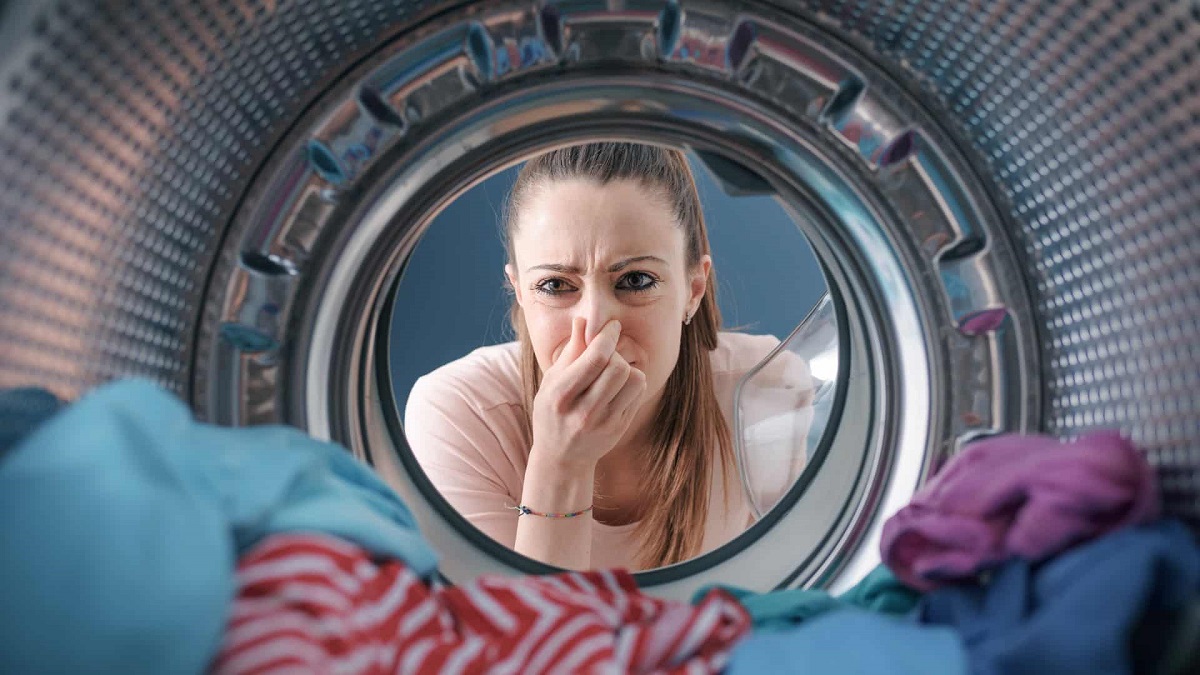

Articles
Why Does Washer Smell Like Rotten Eggs
Modified: October 21, 2024
Discover effective articles to help you tackle the unpleasant odor of your washer resembling rotten eggs. Say goodbye to the smelly laundry woes!
(Many of the links in this article redirect to a specific reviewed product. Your purchase of these products through affiliate links helps to generate commission for Storables.com, at no extra cost. Learn more)
Introduction
A foul odor coming from your washer is not only unpleasant but can also be a cause for concern. If you’ve noticed that your washer smells like rotten eggs, there are several possible reasons for this unpleasant odor. Understanding the common causes and learning how to get rid of the smell can help you maintain a fresh and clean washing machine.
When your washer emits a rotten egg smell, it often indicates the presence of sulfur compounds or bacteria. These odors can linger on your clothes, making them unpleasant to wear and reducing the effectiveness of the wash. Fortunately, there are steps you can take to eliminate the smell and prevent it from returning.
In this article, we will explore the common causes of a washer smelling like rotten eggs and provide you with practical solutions to eliminate the odor. By following these tips, you can ensure that your washer remains fresh and odor-free, allowing you to enjoy clean and fresh-smelling laundry.
Key Takeaways:
- Regularly clean your washer, remove mold and residue, and treat bacterial growth to eliminate the rotten egg smell and ensure fresh, hygienic laundry.
- Prevent washer odor by leaving the door open, avoiding overloading, using quality detergents, and performing monthly maintenance to maintain a clean, fresh-smelling machine.
Read more: Why Does Laundry Room Smell Like Rotten Eggs
Common Causes of Washer Smelling Like Rotten Eggs
When your washer emits a foul smell similar to rotten eggs, it can be an indication of various underlying issues. Understanding these common causes can help you identify the source of the odor and take appropriate steps to eliminate it. Here are the main reasons why your washer may smell like rotten eggs:
- Buildup of Residue and Mold: Over time, detergent residue, fabric softener, and dirt can accumulate inside your washer. This buildup creates a breeding ground for mold and bacteria, resulting in a foul odor. Additionally, if you leave wet clothes in the washer for an extended period, mold growth can occur, causing the rotten egg smell.
- Bacterial Growth: Bacteria thrive in warm and moist environments, such as the interior of a washing machine. If your washer is not properly cleaned and maintained, bacteria can multiply and produce sulfur-like compounds, leading to the unpleasant odor.
- Sulfur or Sewage Odor in Water Supply: Sometimes, the source of the rotten egg smell is not from the washer itself but from the water supply. Hydrogen sulfide, a gas commonly found in groundwater, can give off a distinctive rotten egg odor. If your washer is connected to a water source with high sulfur content, the water used in the wash cycle may carry the unpleasant smell.
- Clogged or Faulty Drain Pipe: A clogged or faulty drain pipe can lead to water backing up in your washer, causing a stagnant environment where bacteria can grow. This can contribute to the rotten egg smell coming from your washer.
By understanding these common causes, you can start troubleshooting and addressing the issue that is causing your washer to smell like rotten eggs. In the following sections, we will discuss effective methods to get rid of the smell and prevent it from recurring.
Buildup of Residue and Mold
A common cause of a washer smelling like rotten eggs is the buildup of residue and mold. Over time, detergent, fabric softener, and dirt can accumulate inside your washer, particularly in hard-to-reach areas like the rubber gasket, detergent drawer, and drum.
This buildup creates a humid environment that promotes the growth of mold and bacteria. As these microorganisms multiply, they produce foul odors that can transfer to your clothes, causing them to smell unpleasant.
To tackle this issue, regular cleaning of your washing machine is essential. Here’s how you can effectively clean your washer and remove the residue and mold:
- Empty the Washer: Start by emptying the washer and removing any clothes or laundry items.
- Clean the Detergent Drawer: Remove the detergent drawer and soak it in warm, soapy water. Use a soft brush or toothbrush to scrub away any residue or mold. Rinse thoroughly and allow it to dry before placing it back in the washer.
- Clean the Rubber Gasket: Show extra attention to the rubber gasket, as mold tends to accumulate in the folds. Wipe the gasket with a mixture of equal parts water and vinegar or use a mild detergent. Use a soft sponge or cloth to clean the surface, making sure to reach all the crevices. Rinse with water and dry thoroughly.
- Run a Hot Water Cycle: Set your washer to the highest water temperature and the longest cycle. Add 2 cups of white vinegar to the detergent compartment or drum. This vinegar solution helps eliminate odors and dissolve any residue or mold. Run the cycle through to completion.
- Wipe Down the Drum: After the hot water cycle, use a clean cloth or sponge to wipe down the interior of the drum. Pay attention to any visible residue or mold and remove it. If necessary, repeat the vinegar cycle or use a specialized washing machine cleaner.
By regularly cleaning your washer and removing residue and mold, you can eliminate the source of the rotten egg smell and prevent it from recurring. Additionally, leave the washer door open between cycles to allow air to circulate and help dry out any remaining moisture.
Now that you’ve addressed the buildup of residue and mold, let’s move on to the next potential cause of a washer smelling like rotten eggs, which is bacterial growth.
Bacterial Growth
Bacterial growth is another common cause of a washer smelling like rotten eggs. The warm and moist environment inside your washing machine provides an ideal breeding ground for bacteria to thrive. If the washer is not properly cleaned and maintained, bacteria can multiply and produce sulfur-like compounds, resulting in the unpleasant odor.
To tackle bacterial growth and eliminate the rotten egg smell, here are some effective methods you can try:
- Regular Cleaning: As mentioned earlier, regular cleaning of your washing machine is crucial to prevent bacterial growth. This includes cleaning the detergent drawer, rubber gasket, and drum. By removing any residue and mold, you reduce the chances of bacteria multiplying.
- Use Hot Water and Bleach: Running a hot water cycle with bleach can help kill bacteria and eliminate odors. Start by filling the washer with hot water, then add half a cup of bleach to the detergent compartment or directly into the drum. Run the cycle through to completion. Remember to check your washer’s manual to ensure it can handle bleach.
- Natural Alternatives: If you prefer to use natural alternatives, you can substitute bleach with white vinegar or baking soda. These natural ingredients have antimicrobial properties and can effectively eliminate bacteria and odors. Simply add one cup of white vinegar or half a cup of baking soda to the detergent compartment or drum and run a hot water cycle.
- Leave the Door Open: After each wash cycle, leave the washer door open to allow air to circulate and help dry out any remaining moisture. This can help prevent bacteria from multiplying in the damp environment.
- Consider Using Washing Machine Cleaners: There are specialized washing machine cleaners available in the market that can effectively eliminate bacteria and odors. Follow the instructions provided with the cleaner to ensure safe and effective use.
By implementing these strategies, you can combat bacterial growth and eliminate the rotten egg smell from your washer. Remember to perform these cleaning methods regularly to maintain a fresh and odor-free washing machine.
Next, we’ll explore another potential cause of a washer smelling like rotten eggs, which is a sulfur or sewage odor in the water supply.
Sulfur or Sewage Odor in Water Supply
Sometimes, the source of the rotten egg smell in your washer is not the machine itself but rather the water supply. If there is a sulfur or sewage odor in the water, it can transfer to your clothes during the wash cycle, causing them to smell unpleasant.
Here are some potential reasons why you may be experiencing a sulfur or sewage odor in the water supply:
- Hydrogen Sulfide: Hydrogen sulfide, a gas that smells like rotten eggs, can be naturally present in groundwater. If your washer is connected to a water supply with a high sulfur content, it can contribute to the unpleasant smell.
- Contaminated Water Source: In some cases, the water supply may be contaminated with sewage or other pollutants. This can lead to an unpleasant odor being transferred to your clothes during the wash cycle.
- Plumbing Issues: Problems with your plumbing system, such as a broken sewer pipe or a malfunctioning water heater, can also cause a sewage-like odor in the water supply.
If you suspect that the sulfur or sewage odor is coming from the water supply, here are a few steps you can take:
- Contact Your Water Supplier: Reach out to your local water supplier and inquire about any issues with the water supply. They can provide information on water quality and any ongoing maintenance or repairs.
- Perform a Smell Test: Fill a glass with cold water from your tap and carefully smell it. If it has a sulfur or sewage-like odor, it indicates that the issue is with the water supply.
- Consider Installing a Water Filtration System: Installing a water filtration system can help remove impurities and odor-causing substances from the water supply, ensuring cleaner and better-smelling water for your washer.
- Consult a Professional Plumber: If the issue persists or you suspect a problem with your plumbing system, it is advisable to consult a professional plumber. They can inspect your plumbing system, identify any potential issues, and provide appropriate solutions.
By addressing the sulfur or sewage odor in your water supply, you can prevent the unpleasant smell from transferring to your clothes and eliminate the rotten egg smell in your washer.
Next, let’s delve into another potential cause of a washer smelling like rotten eggs, which is a clogged or faulty drain pipe.
Read more: Why Does My Sink Smell Like Rotten Eggs
Clogged or Faulty Drain Pipe
A clogged or faulty drain pipe can contribute to a washer smelling like rotten eggs. When the drain pipe is obstructed or not functioning properly, water may back up in the washer, creating a stagnant environment where bacteria can thrive and produce foul odors.
Here are some signs that you may have a clogged or faulty drain pipe:
- Slow Drainage: If you notice that the water in your washer is not draining properly or takes longer than usual to drain, it could indicate a blockage in the drain pipe.
- Pooling Water: Water pooling around the washer or the presence of standing water in the drum after a wash cycle can be a sign of a clogged or faulty drain pipe.
- Unpleasant Odor: A foul smell emanating from your washer, especially if accompanied by other drainage issues, may suggest a problem with the drain pipe.
To address a clogged or faulty drain pipe and eliminate the rotten egg smell, you can take the following steps:
- Clean the Drain Filter: Start by locating and cleaning the drain filter, which is typically found at the front or bottom of the washer. Remove any lint, debris, or foreign objects that may be blocking the drain.
- Clear Clogs: If the drain pipe is severely clogged, you may need to use a plumber’s snake or a long, flexible brush to manually clear the blockage. Insert the tool into the drain pipe and gently rotate it to dislodge the clog.
- Check for Obstructions: Inspect the drain hose for any kinks, twists, or obstructions. Ensure that the hose is properly connected to the drain pipe and that there are no leaks.
- Professional Assistance: If you’re unable to resolve the issue on your own or suspect a more significant problem with the drain pipe, it is recommended to seek the assistance of a professional plumber. They can provide a thorough inspection of your plumbing system and address any underlying issues.
By clearing clogs and ensuring proper drainage, you can eliminate the stagnant water that leads to bacterial growth and the unpleasant rotten egg smell in your washer.
Now that we’ve discussed the potential causes of a washer smelling like rotten eggs and provided solutions for each, let’s move on to the next section, which focuses on how to get rid of the smell.
How to Get Rid of the Smell
Dealing with a washer that smells like rotten eggs can be unpleasant, but fortunately, there are effective ways to eliminate the odor. By following these steps, you can get rid of the smell and enjoy fresh-smelling laundry:
- Cleaning the Washer: Regularly clean your washer to remove any buildup of residue, mold, or bacteria. Wipe down the drum, detergent drawer, and rubber gasket with a mixture of water and vinegar or a mild detergent. Run a hot water cycle with vinegar or a specialized washing machine cleaner to thoroughly clean the interior.
- Removing Mold and Residue: Pay extra attention to the rubber gasket, as mold tends to accumulate in the folds. Use a soft brush or toothbrush to scrub away any visible mold or residues. Remember to clean the detergent drawer and drum as well.
- Treating Bacterial Growth: Run a hot water cycle with bleach, white vinegar, or baking soda to kill bacteria and eliminate odors. Alternatively, you can use specialized washing machine cleaners designed to remove bacteria and unpleasant smells.
- Checking the Water Supply: If the smell is coming from the water supply, contact your water supplier for information on water quality. Consider installing a water filtration system to remove impurities and odors from the water used in your washer.
- Fixing the Drain Pipe: If you suspect a clogged or faulty drain pipe, clean the drain filter and clear any blockages manually. Check the drain hose for obstructions or leaks. Seek professional assistance if needed.
By following these steps, you can effectively eliminate the smell and ensure that your washer remains fresh and odor-free. It’s important to note that regular maintenance and cleaning of your washer are essential to prevent the recurrence of the rotten egg smell.
In addition to these steps, here are some tips for preventing washer odor:
- Leave the Washer Door Open: After each wash cycle, leave the washer door open to allow air to circulate and dry out the interior. This helps prevent the growth of mold and bacteria.
- Avoid Overloading: Overloading the washer can prevent adequate water circulation and impede proper cleaning. Follow the manufacturer’s guidelines for load size to ensure optimal washing performance.
- Use High-Quality Detergents: Invest in high-quality detergents and follow the recommended dosage for your specific washer. Using too much detergent can lead to residue buildup and odors.
- Perform Monthly Maintenance: Set a monthly reminder to clean your washer, including the rubber gasket, detergent drawer, and drum. This regular maintenance helps prevent the buildup of residue, mold, and bacteria.
By implementing these tips and regularly maintaining your washer, you can keep it smelling fresh and ensure that your laundry comes out clean and odor-free.
To conclude, a rotten egg smell in your washer can be attributed to various factors, including residue and mold buildup, bacterial growth, issues with the water supply, or a clogged drain pipe. By identifying the specific cause and following the steps outlined above, you can effectively eliminate the odor and maintain a fresh and clean washing machine.
To get rid of the rotten egg smell in your washer, run a hot water cycle with a cup of white vinegar and then a second cycle with baking soda. Clean the rubber gasket and door seal regularly to prevent mold and mildew buildup.
Cleaning the Washer
Regular cleaning of your washer is essential to keep it smelling fresh and free from odor-causing bacteria and residues. By incorporating a simple cleaning routine into your maintenance schedule, you can ensure the longevity of your machine and enjoy clean, fresh-smelling laundry. Here are the steps to follow when cleaning your washer:
- Empty the Washer: Start by emptying the washer and removing any clothes or laundry items that may be inside.
- Wipe Down the Exterior: Use a damp cloth or sponge to wipe down the exterior of the washer, removing any dust, dirt, or detergent residue that may have accumulated. Pay attention to the control panel, knobs, and any other areas that may require cleaning.
- Clean the Detergent Drawer: Remove the detergent drawer and soak it in warm, soapy water. Use a soft brush or toothbrush to scrub away any residue or mold that may have built up. Rinse the drawer thoroughly and allow it to dry before placing it back in the washer.
- Wipe the Rubber Gasket: The rubber gasket, located around the door opening, is a common area for mold and residue buildup. Wipe it down with a mixture of equal parts water and vinegar, or use a mild detergent. Pay attention to the crevices and folds of the gasket to thoroughly remove any debris or mold. Rinse the gasket with water and towel dry.
- Run a Hot Water Cycle: Set your washer to the hottest water temperature setting and run a cycle without any clothes or detergent. Add 2 cups of white vinegar to the detergent compartment or directly into the drum. Vinegar helps remove residue, disinfects, and eliminates odors.
- Wipe Down the Drum: After the vinegar cycle, use a clean cloth or sponge to wipe down the interior of the drum. Pay close attention to any visible residue or mold and remove it. For stubborn stains or odors, you can add baking soda to a damp cloth and scrub the affected areas.
- Remove Hard Water Deposits (Optional): If your region has hard water, which can leave mineral deposits on the interior of your washer, you can descale it using a mixture of equal parts water and white vinegar. Run a hot water cycle with this solution to help remove any buildup.
- Leave the Washer Door Open: After each wash cycle, it’s important to leave the washer door open for a while. This allows air to circulate and helps dry out the interior, preventing the growth of mold and mildew.
By regularly cleaning your washer, you can prevent the accumulation of residue, mold, and odor-causing bacteria, ensuring that your machine operates efficiently and your laundry comes out fresh and clean.
In the next section, we will explore how to remove mold and residue from your washer, which can contribute to the unpleasant rotten egg smell.
Removing Mold and Residue
Mold and residue can accumulate in your washer over time, leading to an unpleasant smell and potentially impacting the cleanliness of your laundry. Removing mold and residue is crucial for maintaining a fresh-smelling washer. Here are steps to effectively remove mold and residue from your machine:
- Prepare a Cleaning Solution: Mix equal parts water and vinegar or use a mild detergent specifically designed for washing machines. Both options work well in removing mold and residue.
- Focus on the Rubber Gasket: The rubber gasket, located around the door opening, is a common area for mold and residue buildup. Dip a soft brush or sponge in the cleaning solution and scrub the gasket, making sure to reach into the folds and crevices. Remove any visible mold or residue and rinse the gasket with water to remove any remaining cleaner.
- Clean the Detergent Drawer: Remove the detergent drawer and soak it in the cleaning solution. Use a brush or sponge to scrub away any residue, dirt, or mold that may have accumulated. Rinse the drawer thoroughly and allow it to dry before placing it back in the washer.
- Wipe Down the Drum: Dip a clean cloth or sponge into the cleaning solution and wipe down the interior of the drum. Pay close attention to any visible residue, mold, or stains. If necessary, use a solution of baking soda and water to scrub stubborn stains or odors.
- Run a Hot Water Cycle: Set your washer to the hottest water temperature and run a cycle without any clothes. Add 2 cups of vinegar to the detergent compartment or directly into the drum. The vinegar will help remove any remaining mold or residue and deodorize the washer.
- Check for Remaining Mold and Residue: After the cycle, inspect the gasket, detergent drawer, and drum for any remaining mold or residue. Repeat the cleaning steps if needed until all mold and residue have been eliminated.
- Leave the Washer Door Open: After cleaning, be sure to leave the washer door open to allow the interior to dry thoroughly. This helps prevent the growth of mold and mildew.
Regularly removing mold and residue from your washer is essential for maintaining a clean and fresh-smelling machine. By following these steps, you can eliminate the source of the unpleasant smell and ensure that your laundry comes out odor-free and hygienic.
In the next section, we will discuss how to treat bacterial growth, which can contribute to the rotten egg smell in your washer.
Treating Bacterial Growth
Bacterial growth is a common cause of a washer smelling like rotten eggs. It can occur due to the warm and moist environment inside the machine, combined with the buildup of residue and organic matter. Treating bacterial growth is crucial for eliminating the unpleasant odor and maintaining a clean and hygienic washer. Here are the steps to effectively treat bacterial growth:
- Empty the Washer: Start by emptying the washer of any clothes or laundry items that may be inside.
- Prepare a Cleaning Solution: Mix equal parts water and bleach, or use a specialized washing machine cleaner. Both options are effective in killing bacteria and eliminating odors.
- Run a Hot Water Cycle: Set your washer to the hottest water temperature and run a cycle without any clothes. Add the cleaning solution to the detergent compartment or directly into the drum.
- Allow the Solution to Soak: Once the cycle is complete, allow the cleaning solution to soak in the washer for about 30 minutes. This gives the bleach or washing machine cleaner time to kill bacteria and remove odors.
- Run Additional Rinse Cycles: After the soaking period, run several rinse cycles to thoroughly remove the cleaning solution and any remaining bacteria and odors. Use plain water or add vinegar to the rinse cycle to ensure thorough rinsing.
- Wipe Down the Drum and Exterior: Use a clean cloth or sponge dampened with water to wipe down the interior drum and the exterior of the washer. Pay attention to any visible residue or stains, and remove them as needed.
- Leave the Washer Door Open: After cleaning and drying, leave the washer door open to allow air circulation and prevent the growth of mold and bacteria.
Performing regular cleaning and treating bacterial growth will help eliminate the rotten egg smell and ensure a fresh and hygienic washer. Additionally, practicing proper laundry habits, such as promptly removing laundry after cycles and avoiding leaving wet clothes in the machine for extended periods, can help prevent bacterial growth in the first place.
In the next section, we will address the potential issue of a sulfur or sewage odor in the water supply, which can contribute to the unpleasant smell in your washer.
Checking the Water Supply
If your washer smells like rotten eggs, the source of the odor may not be from the machine itself but rather from the water supply. Sulfur compounds or sewage odors in the water can transfer to your clothes during the wash cycle, causing them to have an unpleasant smell. Here’s what you can do to check and address any issues with the water supply:
- Contact Your Water Supplier: Reach out to your local water supplier and inquire about any issues or concerns related to the water quality. They can provide information on the source of the water and any ongoing maintenance, which could be affecting the odor.
- Perform a Smell Test: Fill a glass with cold water from your tap and carefully smell it. If you detect a distinct sulfur or sewage-like odor, it indicates that the issue lies with the water supply.
- Consider Water Filtration: If the water supply is the source of the rotten egg smell, installing a water filtration system can help remove impurities and eliminate odors. There are various types of filtration systems available, so choose one that suits your needs and consult a professional if necessary.
- Check for Plumbing Issues: Sometimes, the odor may be caused by plumbing issues within your home. Inspect your plumbing system for any leaks, faulty pipes, or improperly vented sewer lines. If you discover any problems, it is advisable to contact a professional plumber for assistance.
- Utilize a Water Softener: Hard water can sometimes contribute to unpleasant odors. Consider using a water softener system to reduce mineral content and improve the quality of your water. Softened water may help alleviate the rotten egg smell in both your washer and throughout your home.
- Consult a Professional: If the issue persists or if you are unsure about the source of the problem, it’s recommended to consult a professional plumber or a water treatment specialist. They can assess your water supply and plumbing system to determine the cause of the odor and provide appropriate solutions.
By checking the water supply and addressing any issues, you can prevent the transfer of unpleasant odors to your clothes during the wash cycle. It’s important to remember that some water sources naturally contain sulfur compounds, which can cause a rotten egg smell. In such cases, a water filtration system may be the most effective solution.
Next, we will discuss the potential issue of a clogged or faulty drain pipe, which can contribute to the washer smelling like rotten eggs.
Fixing the Drain Pipe
A clogged or faulty drain pipe can be a contributing factor to a washer smelling like rotten eggs. If the drain pipe is obstructed or not functioning properly, water can back up in the washer, creating a stagnant environment where bacteria can grow and produce foul odors. Here’s how you can fix the drain pipe to eliminate the rotten egg smell:
- Clean the Drain Filter: Begin by locating and cleaning the drain filter, which is typically located at the front or bottom of the washer. Remove any lint, debris, or foreign objects that may be blocking the drain. This can help improve the drainage and prevent the backup of water.
- Clear Clogs: If the drain pipe is severely clogged, you may need to use a plumber’s snake or a long, flexible brush to manually clear the blockage. Insert the tool into the drain pipe and gently rotate it to dislodge the clog. Continue until the pipe is clear and water can flow freely.
- Check for Obstructions: Inspect the drain hose for any kinks, twists, or obstructions. Ensure that the hose is properly connected to the drain pipe and that there are no leaks. Straighten or replace the hose if necessary.
- Consider Using Drain Cleaners: If simple manual cleaning does not resolve the issue, you can try using a commercial drain cleaner specifically designed for household drains. Follow the instructions provided with the product and exercise caution when handling and applying drain cleaners.
- Seek Professional Assistance: If your efforts to fix the drain pipe are unsuccessful or if you suspect a more significant problem with the plumbing system, it is advisable to seek the assistance of a professional plumber. They can inspect your plumbing system, identify any issues, and provide the necessary repairs or replacements.
By clearing clogs and ensuring proper drainage, you can eliminate the stagnant water that promotes bacterial growth and the subsequent rotten egg smell. Regularly checking and maintaining your drain pipe can help prevent future odors and ensure the efficient functioning of your washer.
Now that we have covered the steps to address the potential causes of a washer smelling like rotten eggs, let’s move on to some tips for preventing odor in your washing machine.
Tips for Preventing Washer Odor
Preventing odor in your washing machine is key to maintaining a fresh and pleasant laundry experience. By following these simple tips, you can minimize the chances of your washer developing a rotten egg smell:
- Leave the Washer Door Open: After each wash cycle, leave the washer door open for a while to allow air to circulate and the interior to dry. This helps prevent the growth of mold and bacteria, which thrive in damp environments.
- Avoid Overloading: Overloading the washer can prevent proper water circulation and result in inadequate cleaning. Follow the manufacturer’s guidelines for load size and distribute clothes evenly to ensure effective cleaning and prevent odor-causing residues.
- Use the Recommended Amount of Detergent: Using excessive detergent can lead to a buildup of residue in your washer. Follow the detergent manufacturer’s instructions and use the recommended amount for your specific washer and load size.
- Perform Monthly Maintenance: Set a monthly reminder to clean your washer, including the detergent drawer, rubber gasket, and drum. Regular cleaning helps remove residue and prevents the accumulation of mold and bacteria.
- Remove Wet Clothes Promptly: Avoid leaving wet clothes sitting in the washer for an extended period of time. Promptly transfer them to the dryer or hang them to dry. This prevents the growth of mold and prevents the transfer of unpleasant odors to your clothes.
- Use High-Quality Detergents: Invest in high-quality laundry detergents that are formulated to minimize residue and odor-causing bacteria. Choose detergents that are suitable for your particular washer and follow the recommended dosage.
- Inspect Hoses Regularly: Regularly check the hoses connected to your washer for any signs of leaks, kinks or blockages. Ensure that the hoses are securely connected and replace any damaged or worn-out hoses promptly.
- Run Monthly Maintenance Cycles: Every month, run an empty hot water cycle with vinegar or a specialized washing machine cleaner. This helps remove any buildup and disinfects the washer, keeping it fresh and odor-free.
By incorporating these tips into your laundry routine, you can significantly reduce the chances of your washer developing an unpleasant odor. Consistent maintenance and proper use of your washing machine will help ensure clean, fresh-smelling laundry every time.
Now that we have covered preventive measures, let’s wrap up the article.
Read more: Why Does Toilet Smell Like Sewer
Conclusion
Dealing with a washer that smells like rotten eggs can be frustrating and unpleasant. However, by understanding the common causes of the odor and implementing the appropriate solutions, you can eliminate the smell and prevent it from recurring.
In this article, we explored the common causes of a washer smelling like rotten eggs, which include the buildup of residue and mold, bacterial growth, sulfur or sewage odor in the water supply, and clogged or faulty drain pipes. We discussed effective methods to address each of these causes, from cleaning the washer and removing mold and residue to treating bacterial growth and checking the water supply.
We also provided tips for preventing washer odor, such as leaving the washer door open, avoiding overloading the machine, using the recommended amount of detergent, and performing regular maintenance. These tips will help you maintain a fresh and odor-free washing machine and keep your laundry smelling clean and pleasant.
Remember, regular cleaning and maintenance are essential to prevent the accumulation of residue, mold, and bacteria. By taking proactive steps to address and prevent washer odor, you can ensure a more enjoyable laundry experience while maintaining the longevity and efficiency of your machine.
Incorporate the tips, strategies, and preventive measures discussed in this article to eliminate the rotten egg smell from your washer, creating a clean, fresh, and hygienic environment for your laundry.
Thank you for reading, and here’s to clean and odor-free washing machines!
Frequently Asked Questions about Why Does Washer Smell Like Rotten Eggs
Was this page helpful?
At Storables.com, we guarantee accurate and reliable information. Our content, validated by Expert Board Contributors, is crafted following stringent Editorial Policies. We're committed to providing you with well-researched, expert-backed insights for all your informational needs.
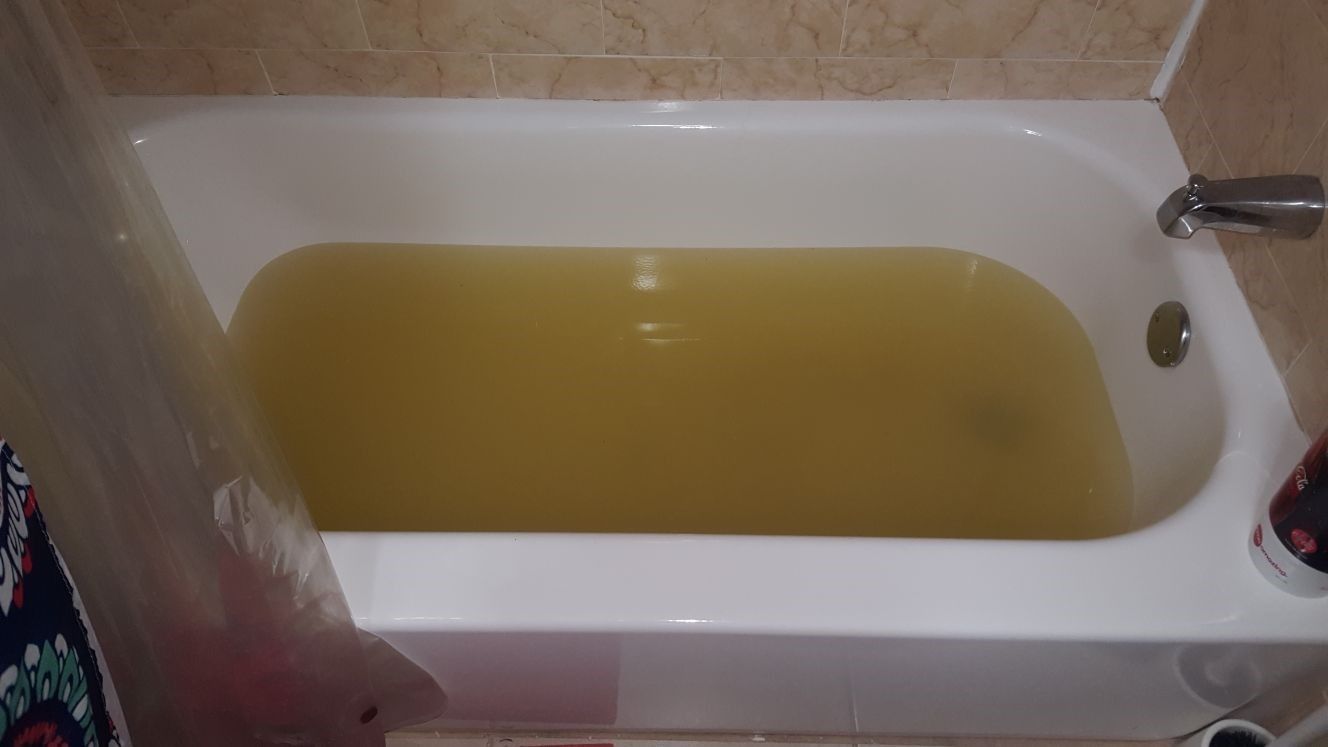
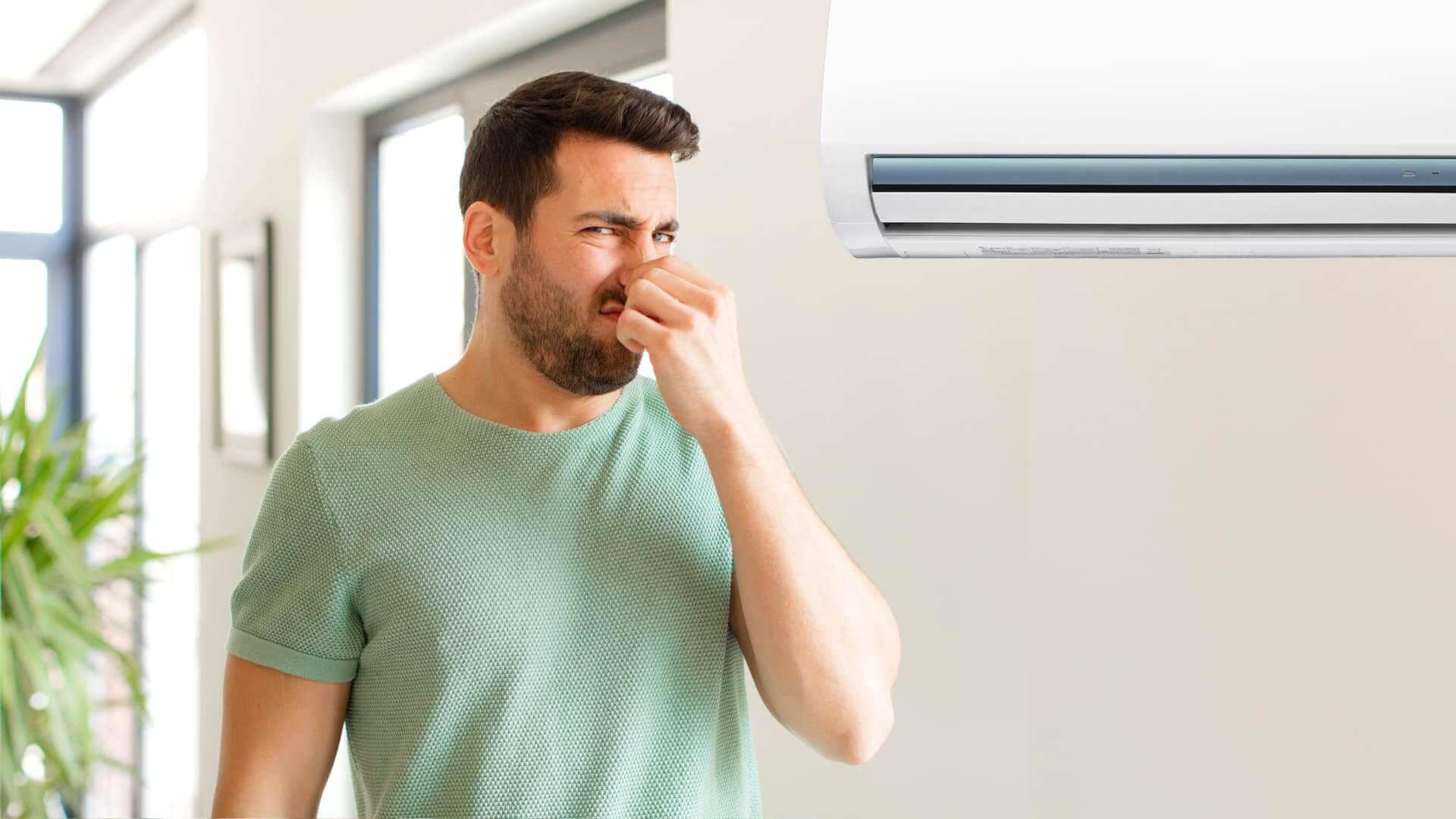

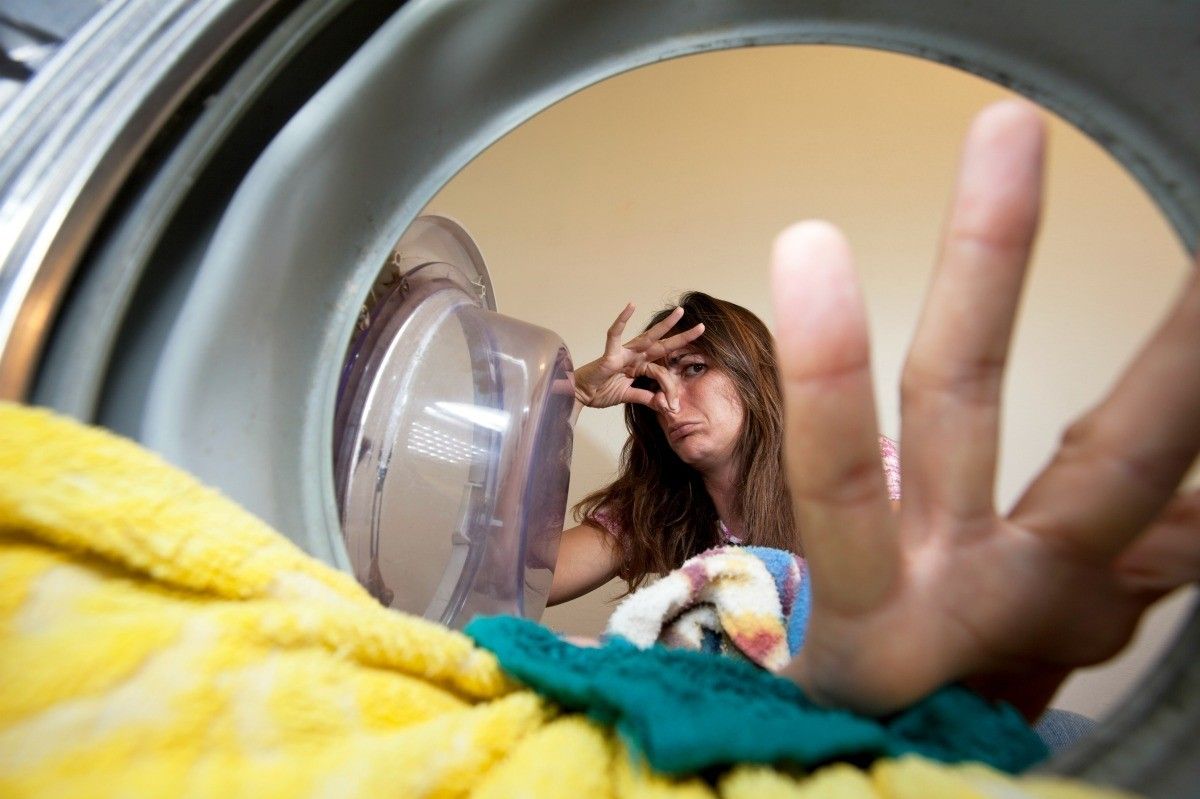



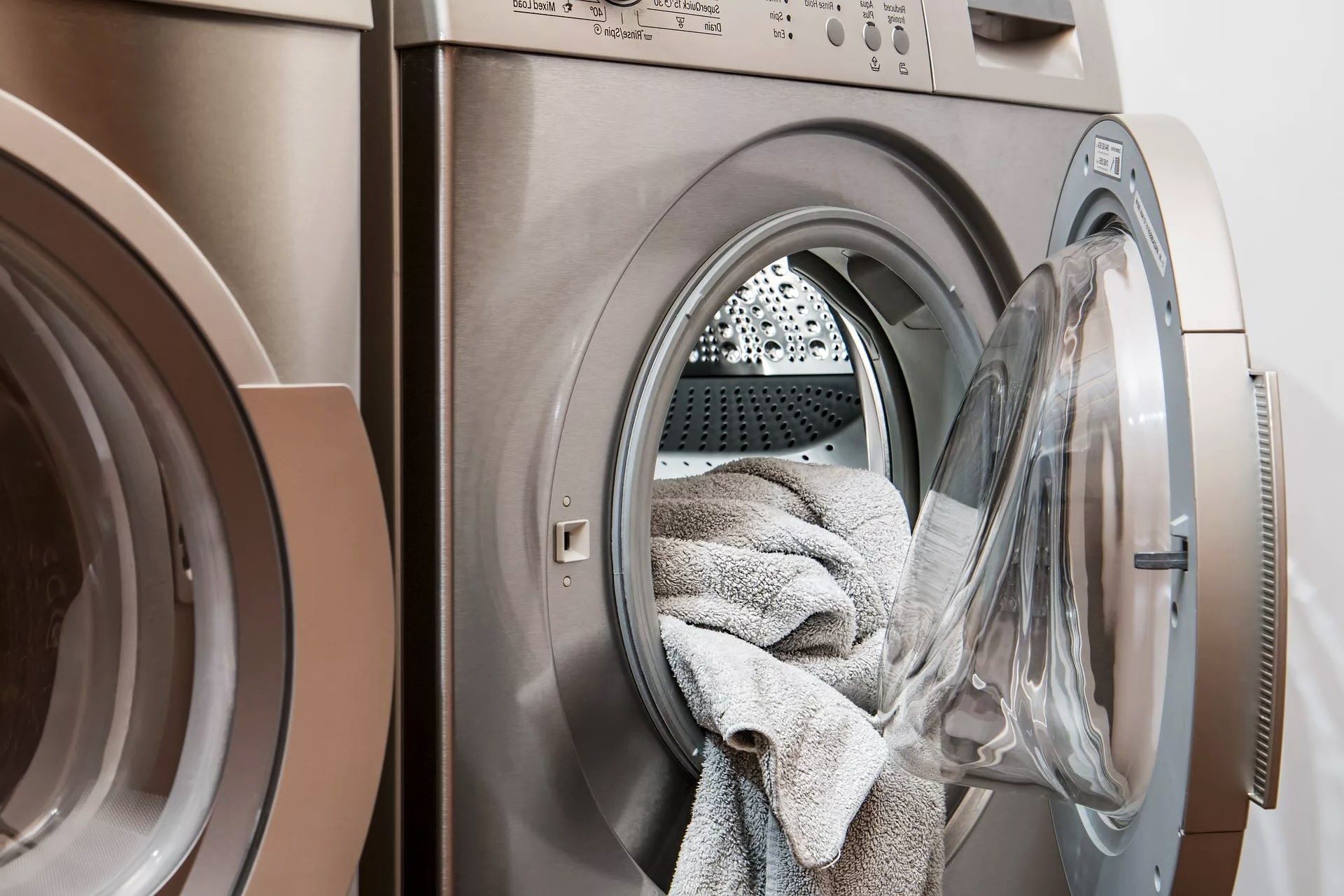

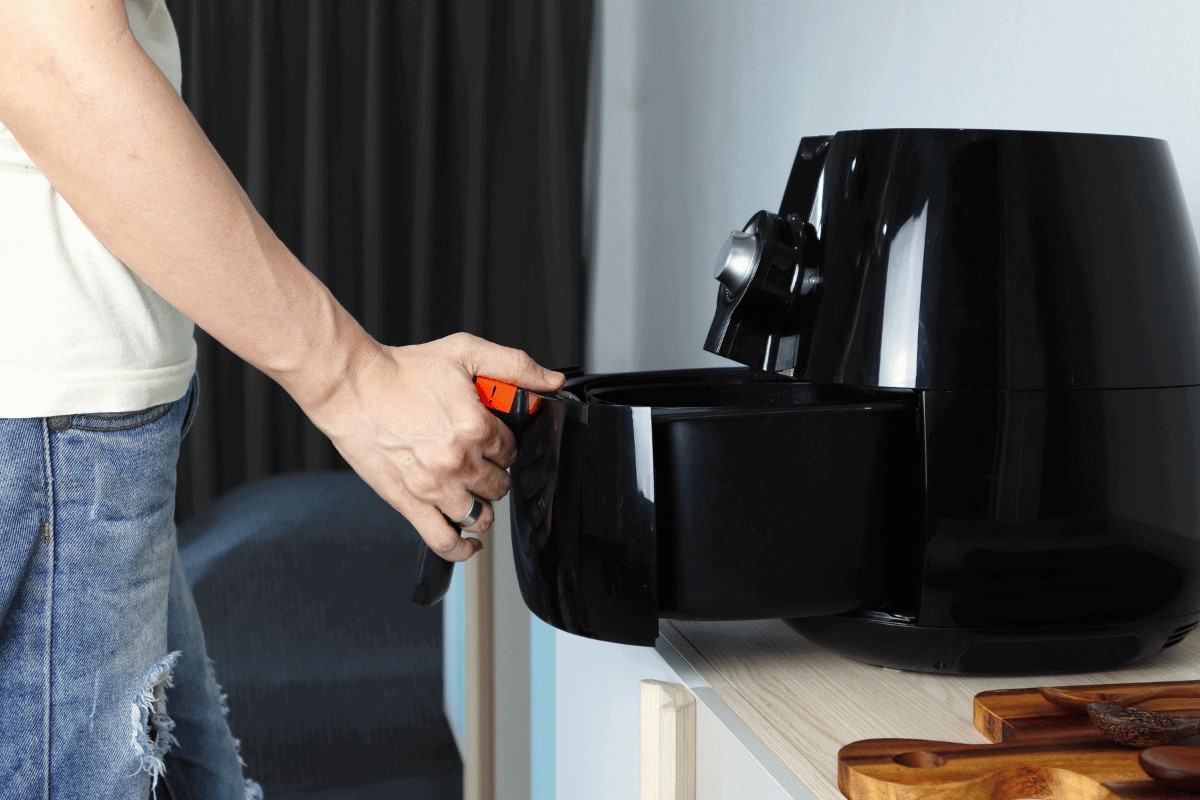



0 thoughts on “Why Does Washer Smell Like Rotten Eggs”